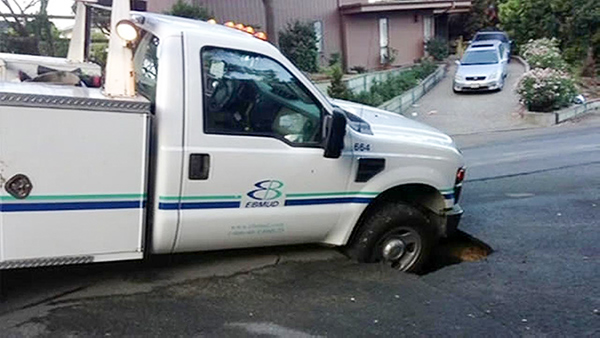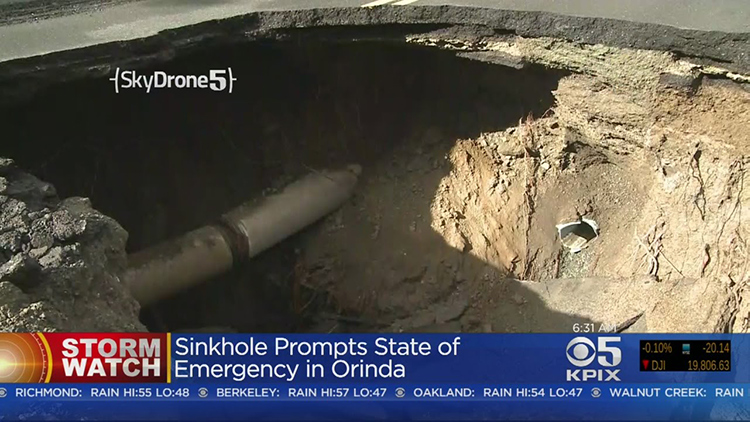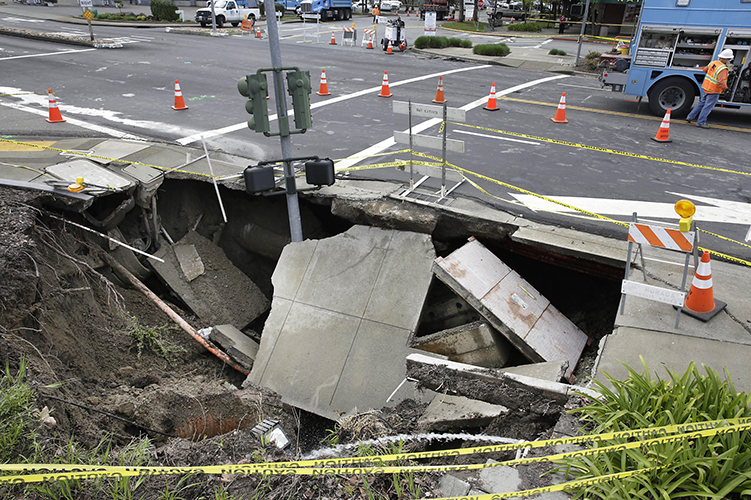Some homeowners find themselves dealing with an unexpected and worsening problem on their property: sinkholes.
Sinkholes are usually an artificial problem typically caused damaged sewage pipes and drainpipes, broken septic tanks, buried trash, or soil that was not properly compacted after excavation work.
Sinkholes can appear where underground sewer pipes have been damaged. This is especially noticeable when the soil is saturated with wastewater due to the foul odor. Sinkholes may gradually occur over time as old pipelines erode and wastewater spills into the ground surrounding the pipe – but pipe damage can also result from ineffective patching and other avoidable sewer repair mistakes.
Here’s everything you need to know about sinkholes, and why high-quality sewer repair services can help you avoid them on your property.
What is a Sinkhole?
A sinkhole is a hole or depression in the ground caused by some type of collapse of the surface-layer sediment into the ground. They’re also frequently called sinks, shake holes, swallow holes, swallets, dolines, and cenotes. A sinkhole can be as large as 2,000 feet or as small as 12 inches in diameter.
There are two types of sinkholes:
- Cover-subsidence sinkholes occur where a layer of soluble rock has been worn away underground, and the soil then fills it in – causing a large depression at the surface level. These are the types of large sinkholes that often create caverns
- Cover-collapse sinkholes occur when storms, flooding, or drought quickly removes a material in the ground, causing the surface-level sediment to suddenly collapse into the void. These sinkholes appear very quickly (within minutes), and can therefore be dangerous.
Some sinkholes form from natural causes, while others are the result of human activity. Abandoned mines can produce large sinkholes for example. Another cause is poor or faulty sewer line repairs.
What Should You Do If A Sinkhole Appears In Your Yard?
If a sinkhole is threatening your home or its structural integrity, vacate the property immediately. Call 911 to alert the proper emergency personnel and alert a building inspector. A professional inspection should be conducted to determine if the structure is safe for habitation.
If the sinkhole is relatively small, it can most likely be filled in. However, it’s important to conduct a sewer line inspection to determine the precise cause of the sinkhole. If you simply fill the hole in without inspecting your pipes, you may have another sinkhole before long – including even more extensive damage.
It’s also important to remember that sinkholes on private property are the property owner’s responsibility.
Why Does Bad Plumbing Cause Sinkholes?

Bad sewer line patchwork and ineffective point repair is unfortunately very common in the bigger cities within the San Francisco Bay Area. Many companies – particularly non-licensed professionals – frequently skip the appropriate quality assurance necessary to prevent future damage. These mistakes may lead to potholes and leaks that eventually cause sinkholes to emerge in the area surrounding the pipe.
Why Is Sewer Line Repair Quality Assurance Important?
Safety measures should be implemented by experienced plumbing crews to prevent sewer lateral damage from occurring. If quality is compromised, you may find yourself with an unexpected sinkhole on your property.
Your sewer repair team should always follow a quality assurance guidelines to ensure your new pipe’s dependability and code compliance. You need to make sure these items are in order:
- Proper backfill – The soil removed around the pipe prior to replacement/repair is no longer suitable backfill material and should be properly disposed of. Your repair team should remove the old dirt and replace it with new soil as part of your standard fee.
- Compaction testing – The new material can be mechanically compacted to 95% to 98% in the public right of way. The new material must then be examined to ensure proper compaction. This is a crucial step in avoiding sinkholes as it ensures that the backfill has settled properly.
- Materials – The pipe material used in your repair should be an appropriate match for your site and the location of the repair as it relates to city vs. homeowner sewer lateral responsibility zones. For instance, it’s important to choose the proper materials when working in the public right-of-way. Certain materials are allowed, but only at specific diameters. Your sewer repair professional should help you choose the most reliable and cost-effective option to meet these requirements.
- USA North 811 tickets – Markings and other required safety precautions should always be followed. We don’t dig without tickets from USA North 811 in place. These underground utility markings are requested through the 811 service and your local utility members will then arrange for the markings to be made.
Official Sewer Line Repair Inspections
There are several regulations that are supposed to safeguard infrastructure and prevent expensive and inconvenient sewer pipe problems such as sinkholes. These rules can help you avoid causing damage later on. It’s also important to stay compliant in order to lower your risk of legal problems.
Sewer line replacement work requires an inspection from the administrative authority in that particular city and in some areas a separate sewer lateral compliance inspection. Make sure your replacement team arranges for this on-site inspection so you can receive the required sewer sign-off. The jurisdiction inspector will examine multiple aspects of the pipe, including material and the pitch or slope of the pipe. This can include certified compaction testing and specific street restoration requirements.

What the city inspectors want to see in terms of standards will differ across city lines, so that adds another level of complexity. For individual help understanding your regulations, or to ask a question about a sinkhole or any other sewer-related problems on your property, contact the experts at Pipe Spy.

